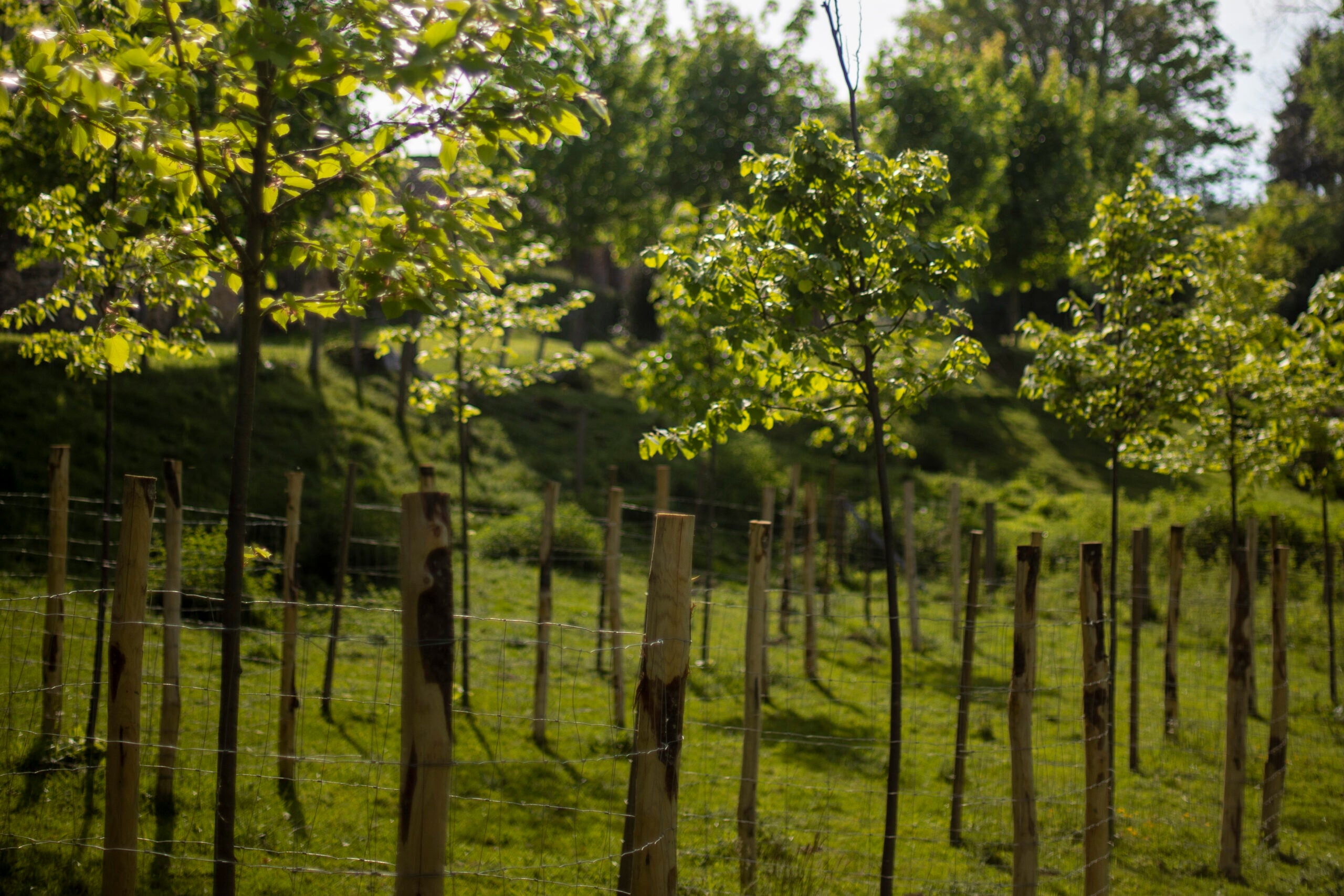
An encounter with Alexandre Jollien, philosopher of Joy
What if for once we talked about joy?
Joy is a central emotion at TiL. If it is particularly dear to our hearts, it is because of its promise in these troubled times, since it soothes body and mind, and stops the stress hormone, but also and above all because one of the many nicknames of the linden tree is “the tree of joy”.
Thus Laurence Monce, sylvotherapist, describes it as the sweetest tree, a balm for the heart, which brings a lot of comfort, whose flowers look like little suns that light up the world with their light. “Its feminine side brings joy and optimism” (extract from her book “ces arbres qui nous veulent du bien”-Dunod).
But what do we mean by the word “joy”?
We interviewed the philosopher Alexandre Jollien, who shared with TiL his profound vision of joy, which is to “say yes”. Yes to the world, so that life gains ground despite the ups and downs. More than an emotion, it is a true philosophy of life…

Giono says that joy is the secret of happiness, Spinoza that it is a form of grace, the fulfillment of our nature. What would Alexandre Jollien’s definition be?
In my eyes, it is above all a saying “yes”, a joyful acceptance of reality as it proposes itself. Spinoza says that it comes from passion and we can see that it is not enough to snap our fingers to reach it. There is no recipe, no instructions, at best one can make oneself available to it by practicing spiritual exercises, by adopting an art of living, by stripping oneself of everything that hinders its coming. It is eminently interdependent. How can we imagine tasting it if we live cut off from the world, cut off from others, far from any link? It is an exercise, a practice and a gift received and shared at every moment.
It is said that to survive is not to live. Do you think that joy is an essential component of Life, and why?
Yes, but we must be careful not to make it an injunction, an additional requirement. Each one advances with the means at hand and the strengths of the day. The first step is to understand, as the Buddha showed, that everything is suffering. Life is fragile, tragic, in a sense, at the mercy of so many accidents. The good news is that joy can be discovered in the midst of chaos, with our wounds and traumas. Nietzsche has this wonderful saying, “You still have to carry chaos within you to give birth to a dancing star.” Happiness presupposes a stability, a permanence that seems almost overwhelming to me. Joy is compatible with the ups and downs of life. As Bergson reveals, it attests that life is gaining ground. Nothing thwarts it more than resignation. It is fluidity. To nourish it, in the midst of difficulty, we are invited to take action and, above all, to dare to ask ourselves the Spinozist question “what really makes us happy?”
You who have children, do you think that we are born happy (or not)? Can joy be learned?
Erasmus wrote that one is not born a man, one becomes one. Woman, man, we build ourselves according to the encounters, the chance and the necessity, the trials and the happy moments. We do not all carry the same baggage, some have to face heavy traumas, repeated trials. The good news is that nothing is ruined forever, that life can always circulate thanks to solidarity. Even a dying person in his interiority can progress. It is not a question of imposing an injunction to be joyful but perhaps of preaching by example. Everyone has their own rhythms, the soul has its seasons.
Can joy be transmitted? How does it happen?
Recently I saw a silly podcast on how to become a millionaire. Something clicked for me. Millionaires are often surrounded by millionaires. Maybe that’s the way it is with joy. How can we enjoy it if we are constantly bogged down in toxic relationships? Zen speaks of friends who are good. In order to progress, it is necessary to be supported and to support. Knowing how to ask for help, practicing a spiritual path, committing to a path of solidarity, taking action. There are a thousand joyful worksites, happy worksites.
Is joy contagious?
Yes, but we must remain sensitive to it! The challenge is to build a society that is awake and free. We must not spread hatred, we must disarm everything that encourages evil. We could become blue helmets, artisans, peacemakers, always doing things that counteract narcissism and open up to life. What are our references of joy and happiness? What are our models of a successful life, a good life? What do we equate with a “successful” existence?
You yourself write, “nothing is simple, everything is practical”; is there, in your opinion, a practice of joy that can be transmitted concretely?
The formula comes from my friend Bernard Campan. It reveals magnificently that everything is a path, an opportunity for progress and inner transformation. In “Humain, trop humain”, Nietzsche says that the first thought of the day could be to ask ourselves whom we can please that day. It is simple, basic, practical. Swâmi Prajnânpad said that love consists in helping the other person to release his tensions. Here again, the challenge is concrete, simple. In order to embark on the adventure, we are always invited to ask ourselves Spinoza’s great question “what really makes us happy? Joy is the rudder of our life, its engine, its compass.

Is there a joy or joys? Are there joys of children and joys of adults? Joys of women and men?
The danger is to put a label when it is a question of feeling, of opening up without analyzing. The Buddha said that the origin of our suffering lies in fixation, in fixing ourselves in an image of ourselves, in clinging to emotions and things. Moreover, children show us this dynamic, this fluidity that is life. They go from laughter to tears in a fraction of a second. Zen teaches us to live without rejection or seizure. To brace oneself, to stiffen oneself is to cut oneself off from the source. To experience, to feel and not to freeze.
Do you think nature can bring joy? Have you ever experienced it?
Rousseau used to go to the garden, he found a thousand pleasures in nature. In his eyes, nature is precisely acceptance. One never meets a grumbling nightingale or a grumbling animal. To rediscover nature is also to reconnect with something stronger than oneself, stronger than the self. It is in short to get out of prison, to leave the narrow barriers of one’s individuality. Nature is our home, our habitat that we must respect infinitely. It offers a contrast with the social pressures and its crazy rhythms that characterize our society.
The degree of what a man can suffer determines his depth and seriousness, but also his joy.
We must beware of the dolorism that believes that suffering is the only access to freedom and peace. As if it were absolutely necessary to strip oneself in order to be purified. It is not joy that grows but what we do with it. And we can become completely bitter and embittered because the ordeal can eat away at us. Without solidarity, alone, we are done for. What is true is that sensitivity is double-edged. To shield oneself, to take refuge behind a shell, an armor, is to cut oneself off from the links, from the unexpected, from the beauty and the goodness of the world.
What would be your advice to help us develop it in a world where stress and anxiety are very present, especially in big cities?
In my opinion, there are three essential pillars: the practice of a spiritual path (meditation, prayer, the exercises proposed by the different traditions), spiritual friendship (solid bonds that help us to progress in an unconditional love far from the desire to please and the fear of losing) and finally, the practice of generosity, doing everything possible to build with the forces of the day a society that is freer, more awake and just. More than anything else, it is a matter of taking action; intention is not enough. We are invited to persevere on this path of joy and liberation.

The linden tree, the tree of dance, the tree of love is also sometimes called the tree of joy! What does this mean to you?
To reach for the sky, a tree needs to be deeply rooted in the ground. No spirituality is worthwhile if it is not rooted in solidarity, in the here and now, in the gift of self! A tree to dance… learn to dance in the chaos, to say yes to the world, to the tragedy of existence and to remain fluid, free and generous… Tree of love… bear fruit, not to curl up on oneself but to give, to share, to become an offering… Tree of joy… we have never seen a tree uproot itself to go somewhere else! Where it is, there it bears fruit. Joy comes from this active and fruitful saying yes. Magnificent symbol that this ample and generous tree which, by the way, gives damn good herbal teas!
Thank you very much Alexandre Jollien !
Saying “yes”… “yes” not to miracles, but to small soothing and joyful moments that escape from stress, and make you slip into a sensory parenthesis… this is TiL’s ambition.


